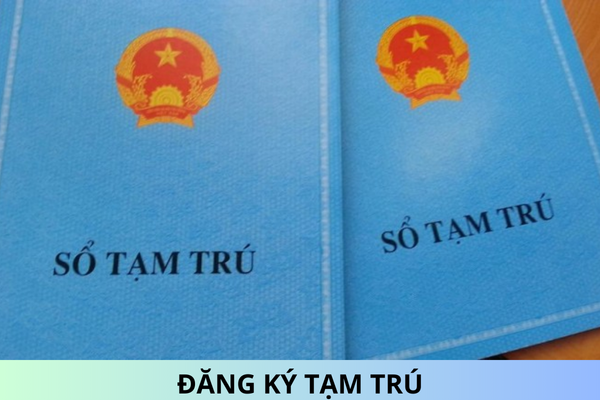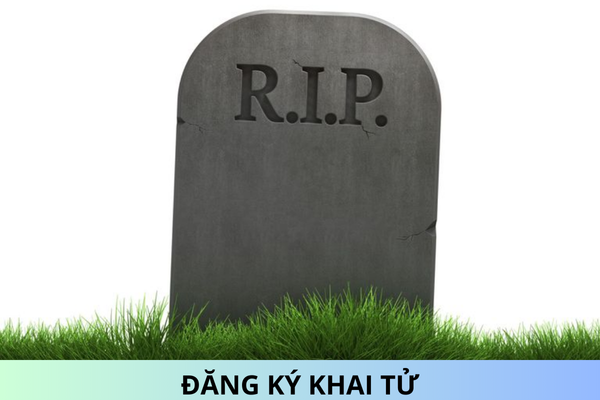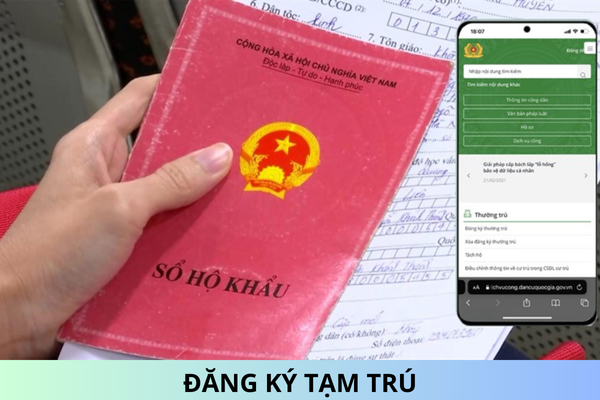Can the adjoining landlord not allow to discharge or pump water for farming in Vietnam?
Can the adjoining landlord not allow to discharge or pump water for farming in Vietnam? What are regulations on right of drainage through adjoining immoveable property in Vietnam? What are regulations on use of passage through adjoining immoveable property in 2017 in Vietnam?
Can the adjoining landlord not allow to discharge or pump water for farming in Vietnam?
I have a paddy field. Because the land is located inside other plots of land, in the past, pumping and discharging water for farming were all through the adjoining land. But now the adjoining landowner does not allow me to discharge or pump water through their land anymore. This made my farming activities stalled, unable to farm. Is it legal for the owner of the adjoining land to not let me discharge or pump water? What do I have to do to be able to farm normally?
Reply:
Article 252 of the 2015 Civil Code stipulates rights relating to supply and drainage of water through adjoining immoveable property as follows:
Where, due to the natural location of immoveable property, the supply and drainage of water must pass through another immoveable property, the owner of the immoveable property through which the water flows must provide an appropriate channel for the supply and drainage of water and may not hinder or prevent the flow of water.
The person using the water supply and drainage channel must minimize to the lowest possible extent any damage to the owner of the immoveable property through which the water flows when installing the water channel. If damage is caused, compensation must be made. Where water flows naturally from a higher position to a lower position and causes damage to the owner of the property through which the water flows, the person using the water supply and drainage channel shall not be liable to compensate for any damage.
Thus, when in the above case in Vietnam, the owner of the adjoining real estate has acts of obstructing the water pump, affecting your production, you can report the case to the President of the Commune People's Committee where the land is located to handle.

What are regulations on right of drainage through adjoining immoveable property in Vietnam?
What are regulations on right of drainage through adjoining immoveable property? There used to be a common passage between our three families, but now we don't use it anymore. My family has used a small trench as a domestic drain since it was still a common passage. Now, the village and commune authorities have sold that passage to a family and they asked my family to fill the ditch so my family has no way to drain water for daily life. So let me ask if that action of village and commune authorities is right or wrong?
Reply:
Article 251 of the 2015 Civil Code stipulates the obligations of owners in wastewater drainage: "An owner of house or construction work must install underground drains or water drainage channels to discharge waste water to the prescribed location in order that the waste water does not run and spill onto any adjoining immoveable properties or onto public streets or public places.”
Article 252 of the 2015 Civil Code stipulates rights relating to supply and drainage of water through adjoining immoveable property as follows:
Where, due to the natural location of immoveable property, the supply and drainage of water must pass through another immoveable property, the owner of the immoveable property through which the water flows must provide an appropriate channel for the supply and drainage of water and may not hinder or prevent the flow of water.
The person using the water supply and drainage channel must minimize to the lowest possible extent any damage to the owner of the immoveable property through which the water flows when installing the water channel. If damage is caused, compensation must be made. Where water flows naturally from a higher position to a lower position and causes damage to the owner of the property through which the water flows, the person using the water supply and drainage channel shall not be liable to compensate for any damage.
According to the information you provided, the three families used to have a common passage, but now it is no longer used. On it, your family has placed a small trench as a drain for household activities; If that land is not your family's land but someone else's land, in this case, it is necessary to consider whether bringing domestic water through that part of the land is an appropriate way of water supply and drainage?
+ If the drainage through that piece of land is the only drainage, your family has the right to ask the family that is using the passage for your house to carry wastewater through it. It is baseless for the person who owns this land to ask you to fill the drain.
+ If the drainage through it is not a reasonable drainage or affects the land use of the land user or affects the public environment, the land user has the right to request you to fill, the fact that you arbitrarily take that part of the land as a drainage ditch is an illegal encroachment on the land. This behavior will be administratively sanctioned according to the provisions of Decree 102/2014/ND-CP.
The above is the advice of us on the right to drainage through adjoining real estate. You should refer to the Civil Code 2015 for details on this provision.
What are regulations on use of passage through adjoining immoveable property in 2017 in Vietnam?
Regulations on use of passage through adjoining immoveable property in 2017. Mr. A's family is located next to the riverbank and is surrounded by Mr. B's and Mrs. C's family, so there is no way to go to the passage. Although it is closer and more convenient to go through Mr. B's garden to the passage, because of a previous conflict, Mr. B's family does not agree to give Mr. A's family a lift. Therefore, Mr. A's family goes through Mrs. C's land to go to the passage and Mr. A's family has to pay Ms. C's family 10 million for a long-term pass. After 8 years of using the passage through Mrs. C's house, Mrs. C sold the house and transferred the land use rights to Mr. D's family. Mr. D's house demolished the old house to build a new house, the new house was built on the whole area of the passage used by Mr. A's family. Is Mr. D's house built on the passage that Mr. A's family has used for the past 8 years?
Reply:
At the time of 8 years ago, the law stipulates the right of passage through adjacent real estate in Article 254 of the Civil Code 2015 as follows:
1. An owner of immoveable property which is surrounded by immoveable properties of other owners such that there is no exit has the right to request one of the owners of adjoining immoveable properties to provide it with a passage to a public road on their land.
The passage shall be opened in the adjoining immoveable property which is deemed to be the most convenient and reasonable, taking into consideration the special characteristics of the location, the interests of the immoveable property which does not have an exit, and what will cause the least damage to the immoveable property through which the passage is created.
The owner of the immovable property eligible for the passage must compensate for the obliged immovable property, unless otherwise agreed.
2. The location and the length, width and height of the passage shall be agreed by the owners in order to ensure convenient passage and minimize inconvenience to the parties. If there are any disputes regarding the passage, the parties may request the authorized State body to resolve.
3. Where immoveable property is divided into more than one portion for different owners or users, upon division, necessary passages must be provided, without compensation, to persons in the interior as provided in Clause 2 of this Article.
Thus, in the case of your question, Mr. A's family is the owner of real estate surrounded by other owners' properties without any way out, has the right to claim one of the the owner of the adjoining real estate gives them a way out to the passage, namely Mr. B or Mrs. C. And if requested by Mr. A to open the way out, Mr. B or Mrs. C is obliged to meet the request of Mr. A in Vietnam.
In case Mr. A has agreed with Ms. C on opening a passage and has compensated Ms. C with an amount of VND 10 million, the two parties need to make a written agreement on this issue and when Ms. C sells the house to Mr. D, Mr. D is obliged to continue to open the passage for Mr. A according to the agreement with Mrs. C initially.
If there are grounds to prove Mr. A's agreement with Mrs. C on opening the exit and having compensated Ms. C, at the moment Ms. C sells the house to Mr. D, Mr. D builds the house on the passage. Mr. A's property, Mr. A has the right to file a lawsuit against Mr. D for violating the agreement on the passage and Ms. C is jointly responsible.
- At the present time, when Mrs. C has sold the house to Mr. D, the current law on the right of passage in Article 254 of the Civil Code 2015 applies as follows:
1. An owner of immoveable property which is surrounded by immoveable properties of other owners such that there is no exit has the right to request one of the owners of adjoining immoveable properties to provide it with a passage to a public road on their land.
The passage shall be opened in the adjoining immoveable property which is deemed to be the most convenient and reasonable, taking into consideration the special characteristics of the location, the interests of the immoveable property which does not have an exit, and what will cause the least damage to the immoveable property through which the passage is created.
The owner of the immovable property eligible for the passage must compensate for the obliged immovable property, unless otherwise agreed.
2. The location and the length, width and height of the passage shall be agreed by the owners in order to ensure convenient passage and minimize inconvenience to the parties. If there are any disputes regarding the passage, the parties may request the authorized State body to resolve.
3. Where immoveable property is divided into more than one portion for different owners or users, upon division, necessary passages must be provided, without compensation, to persons in the interior as provided in Clause 2 of this Article.
The above is the advice of us on the use of the passage through the adjoining real estate in 2017. You should refer to the Civil Code 2015 for details to understand this provision in Vietnam.
Best regards!










